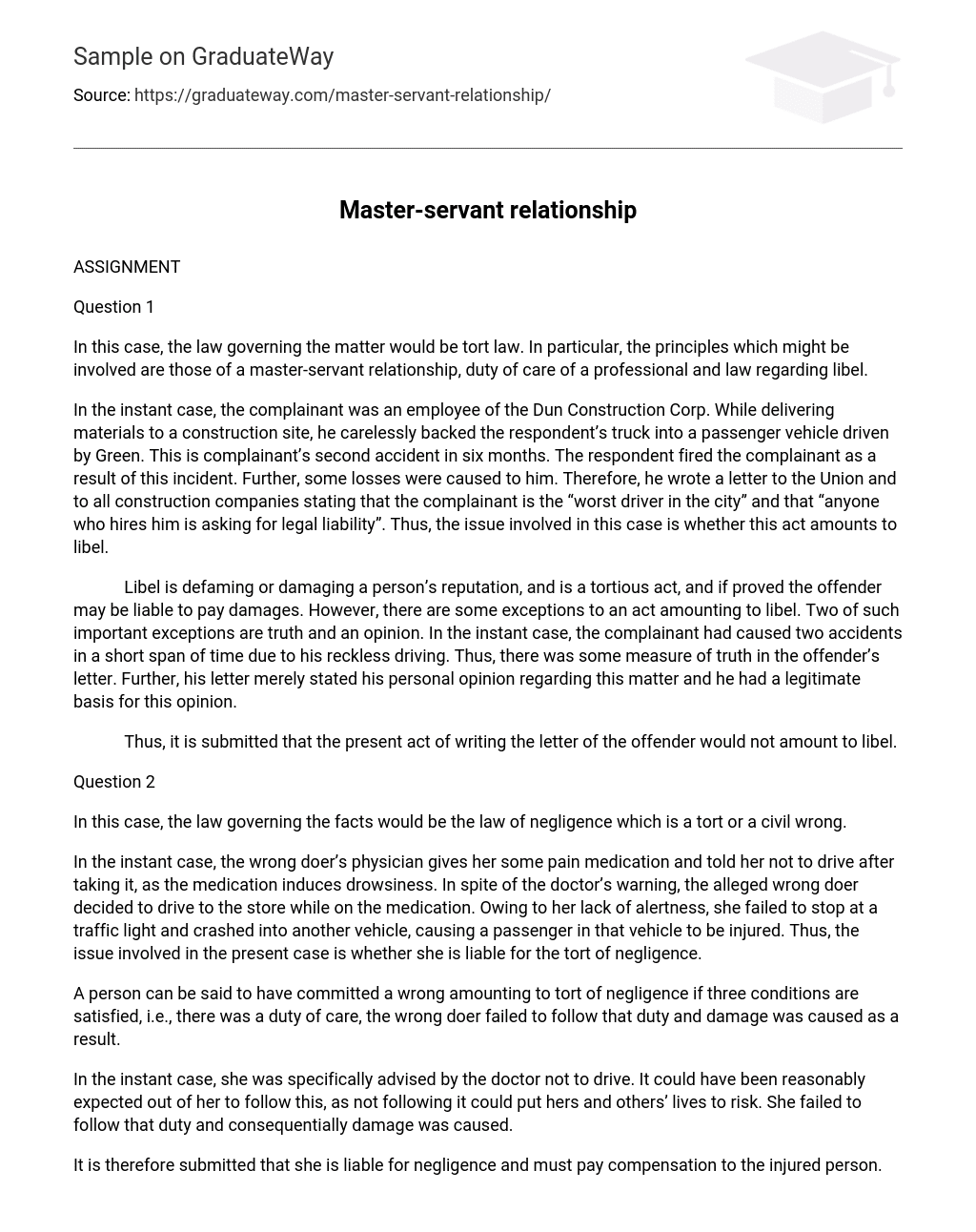In this case, the law governing the matter would be tort law. In particular, the principles which might be involved are those of a master-servant relationship, duty of care of a professional and law regarding libel.
In the instant case, the complainant was an employee of the Dun Construction Corp. While delivering materials to a construction site, he carelessly backed the respondent’s truck into a passenger vehicle driven by Green. This is complainant’s second accident in six months. The respondent fired the complainant as a result of this incident. Further, some losses were caused to him. Therefore, he wrote a letter to the Union and to all construction companies stating that the complainant is the “worst driver in the city” and that “anyone who hires him is asking for legal liability”. Thus, the issue involved in this case is whether this act amounts to libel.
Libel is defaming or damaging a person’s reputation, and is a tortious act, and if proved the offender may be liable to pay damages. However, there are some exceptions to an act amounting to libel. Two of such important exceptions are truth and an opinion. In the instant case, the complainant had caused two accidents in a short span of time due to his reckless driving. Thus, there was some measure of truth in the offender’s letter. Further, his letter merely stated his personal opinion regarding this matter and he had a legitimate basis for this opinion.
Thus, it is submitted that the present act of writing the letter of the offender would not amount to libel.
Question 2
In this case, the law governing the facts would be the law of negligence which is a tort or a civil wrong.
In the instant case, the wrong doer’s physician gives her some pain medication and told her not to drive after taking it, as the medication induces drowsiness. In spite of the doctor’s warning, the alleged wrong doer decided to drive to the store while on the medication. Owing to her lack of alertness, she failed to stop at a traffic light and crashed into another vehicle, causing a passenger in that vehicle to be injured. Thus, the issue involved in the present case is whether she is liable for the tort of negligence.
A person can be said to have committed a wrong amounting to tort of negligence if three conditions are satisfied, i.e., there was a duty of care, the wrong doer failed to follow that duty and damage was caused as a result.
In the instant case, she was specifically advised by the doctor not to drive. It could have been reasonably expected out of her to follow this, as not following it could put hers and others’ lives to risk. She failed to follow that duty and consequentially damage was caused.
It is therefore submitted that she is liable for negligence and must pay compensation to the injured person.





